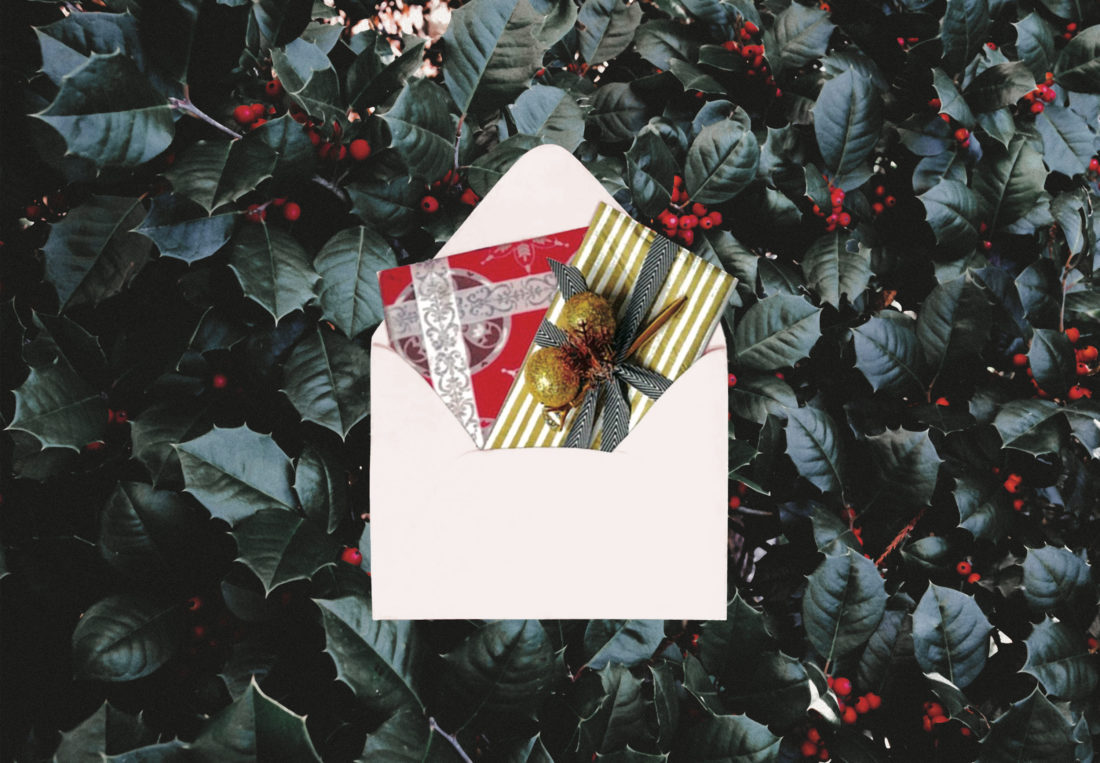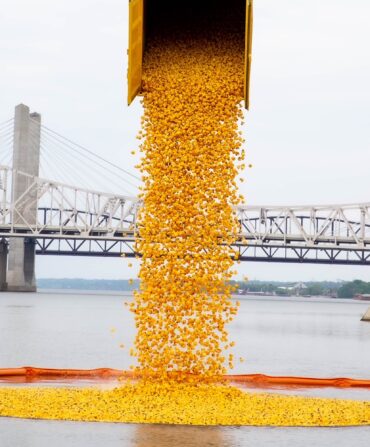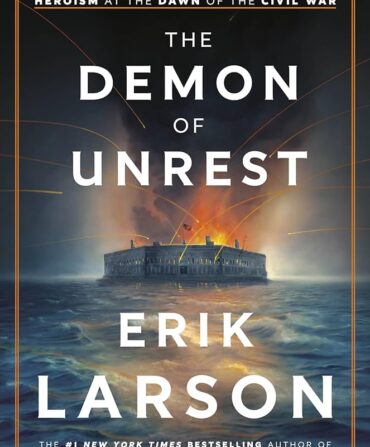My cell phone begins to buzz, the name “Mom” flashing across the screen. We start the conversation the way we always do when I’m on the road for work: She asks me about the nearest town, and I try to catch its name as I whiz by the highway sign on my way to somewhere else. Then: “I need a favor,” she injects quickly, and I sigh, wondering what sort of detour I’m about to take.
“Can you just pick up something little…”
My mother’s voice sounds brittle and tired. She has been a mail carrier for twenty-one years in Upstate South Carolina, and after Thanksgiving, the time she has to report to work at the post office pushes up earlier and earlier, from 8:00 a.m. to 6:00 a.m., and then, in the throes of the Christmas crunch, to 5:00 a.m., for a schedule of twelve-to-sixteen-hour days of deliveries.
“I got a letter…” Her voice trails off, and I can fill in the gaps. She is asking for presents for children who mail letters to Santa. “The girl that sent this one is kind of artsy, so pick up something small and interesting,” she adds. “I’ll see you when you get home.”
Mom and I do this dance annually, between Thanksgiving and the end of the year: She gives me a vague direction for gifts, and I try to read her mind as I travel for my writing career across states—in this case, from nine hundred miles away, about to cross the Texas-Louisiana line. I always think Mom trusts me too much with this part—as a childless thirty-something, I am not exactly fluent in gifts kids might consider cool. I try to pick up things that they might not see at a superstore with their guardians: kid-sized binoculars from a national park, a calendar with reptile facts, a coloring book about fossils, plants, or animals. On international trips, I often save space in my checked luggage for this purpose, toting back a mini Paddington Bear in his signature peacoat, trinkets with phrases in foreign languages, a doll in Bahamian dress for a girl in need of a brown-skinned plaything—my way of signaling to them that there’s a big world out there, and maybe one day they’ll get to see it.
When I return home this time, two letters sit on my desk, one in a white envelope, another in blue, each scrawled with a name: Santa Claus. For almost twenty years, I have played the role of one of Santa’s elves for my mother and have written back. I usually thank the children for their inevitable drawings (and, sometimes, for the enclosed snack of hot cocoa or candy canes) and acknowledge their wish lists. Then I tell Mom what they have asked for.
Parents stretched to their emotional and financial limits have little time for wonder or fantastical tales, but I can give the children at least this bit of novelty. That’s what makes what Mom and I do magical even to me: The parents don’t expect a response, let alone for someone to leave their children something special. A small miracle even adults can’t anticipate.
When letters come in, Mom hands them off: “Who better to be Santa than a writer?” But it’s often not so simple. Children can ask hard questions, looking for better answers than their parents are willing to provide. I have two rules: Never lie, and don’t make promises that we cannot keep. And if there’s a chance the parents won’t be able to fulfill a child’s wish, Mom does the best she can to ensure they have a good Christmas anyway—even if she’s only able to set them up with school supplies for the new calendar year.
My role is also complicated by the fact that…I am not that fond of Christmas. The expectations and frustrations of trying to find the perfect gift and then come up with the money for it, all to make loved ones happy, dishearten me. Then there are the service workers, the people (like my mom) responsible for making that mirth happen, who are overworked and underpaid. Whatever cheer and empathy the season inspires in the greater public never seems to last.
But. But. I absolutely love this letter-writing part.
Just when I think I’m done—all the kids and requests accounted for, even ahead of schedule—Mom hands me another slip of paper. On one side, a name and a shoe size. An elderly woman living in a trailer with intermittent heat needs new slippers. On the other side, the name of a struggling mom destined to have nothing for herself under the tree. I go back out into the cold to get them gifts. When we’re done making those deliveries, we leave a homemade fruit basket dotted with peppermints on the doorstep of an old man who recently lost his wife.
We adults sometimes need a Santa, too. Someone who recognizes our existence. Who sees our hope.
Often here in this column, I write about the disappearing South—the traditions, memories, and landscapes at risk of evaporating. And even though Christmas is not going anywhere, it appears the holiday is changing for me, my mama, and the folks along the postal routes she has served for more than two decades.
Sure, the sleepy little hamlet where she started her mail career has grown into a burgeoning suburb. More well-to-do homes with families who don’t have to worry about affording Christmas are sprouting up along her route. Thanks to the state of the world and internet access, a lot of kids don’t believe in Santa Claus anymore. Some have stopped writing physical letters altogether, favoring email’s instant “message received” feedback. But there is something more personal but no less consequential afoot that will make this year different: Mom’s impending total hip replacement surgeries.
The operations are a long time coming. And while the wear and tear of life is, in this case, repairable, the long-term effects will be irreversible. Even in the best-case scenario, delivering thousands of packages each week will most likely prove too much for her body. She may never be able to play Santa Claus along her mail route again. The uncertainty is needling me, so I ask Mom how she feels about the idea that Christmas might be changing.
As an artist and clothing designer who needed to feed her family, Mom joined the post office right after September 11, 2001, and has experienced a lot since: the anthrax scares, the serial package bombings, the proliferation of conspiracy theories about the post office and mail-in voting, and now postmaster general Louis DeJoy’s attempted reorganization of the service America depends on. She has interacted with residents who admit they cannot read and must sign their names with an X. She sees the epidemic of loneliness among the elderly and infirm who rarely leave their houses. She may be the only person they talk to all day.
Now she assures me that she doesn’t do this work alone—every mail carrier she knows, and by extension, their families, contribute something to the well-being of their communities. She tells me of the mother of a coworker who knits booties and hats for the carrier to give to elderly adults. She mentions Ms. Janet, who plasters her Grumman LLV mail truck with artwork and scribbles from the kids along her route, a gallery on wheels. They leave them in their mailboxes just for her. We are part of a vast network of postal workers doing the same thing, she says, trying to make lives better.
In case this is it for me and Mom, this season when I’m on the road, I’ll pick up the most marvelous things: a pine-needle basket-weaving kit from my time at the Ocmulgee Mounds in Macon, Georgia; armadillo and bat plushies from a long weekend in San Antonio; and perhaps some sticker books of the flora and fauna of Mississippi. I’ll find a way to get them to the children who write to Santa Claus through the post office, with the knowledge that when I’m finished, the carriers will carry on. That spirit isn’t going anywhere.








